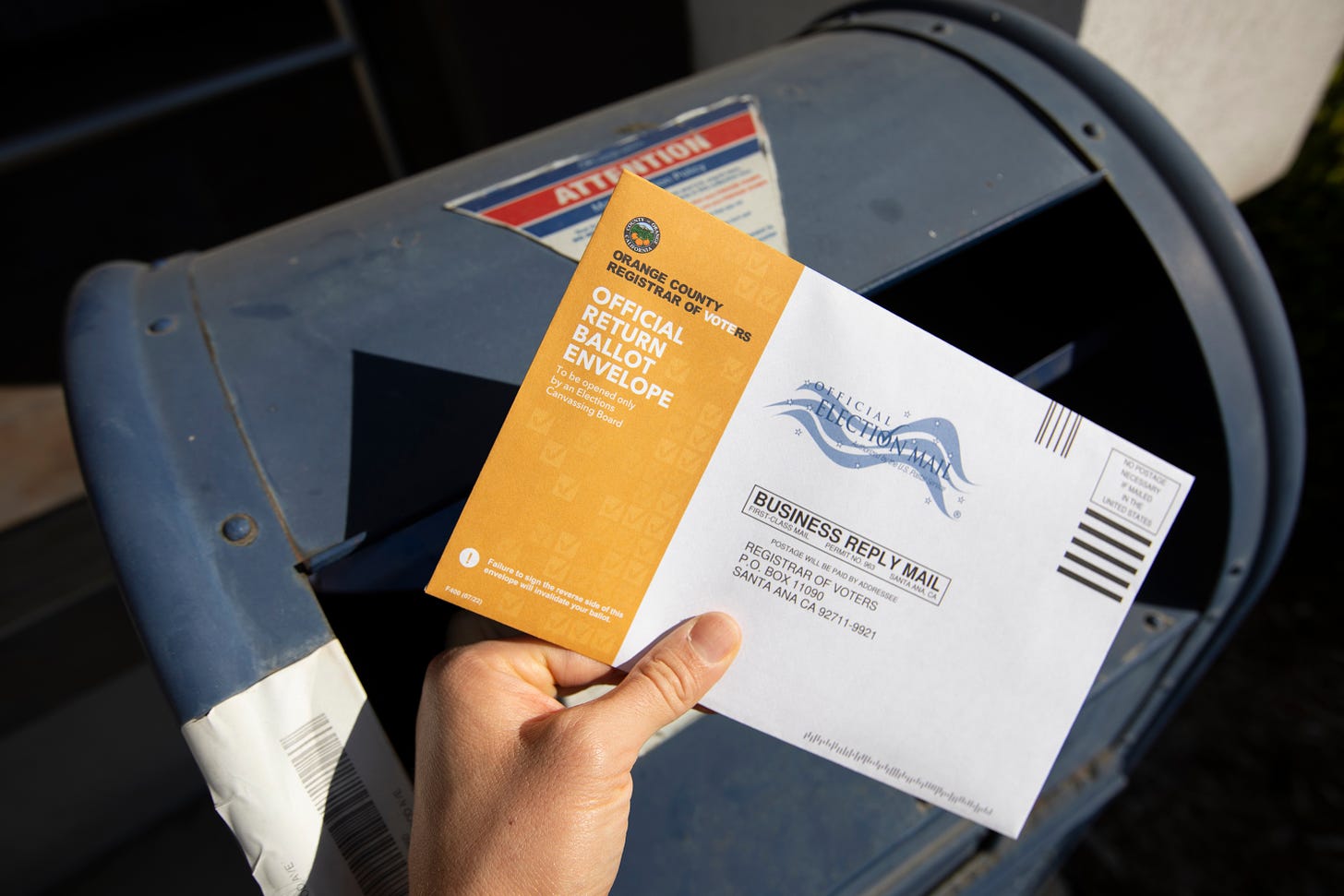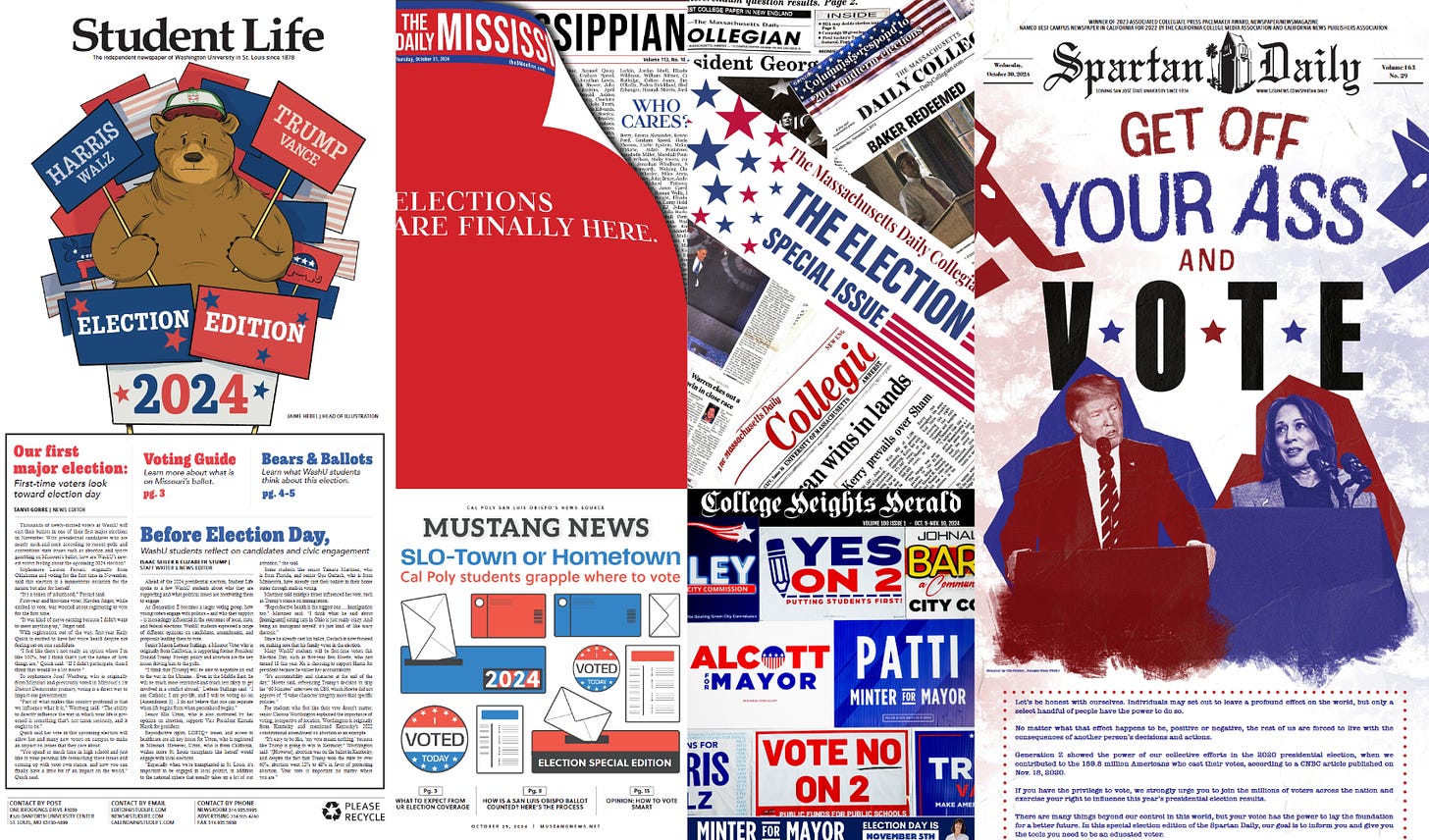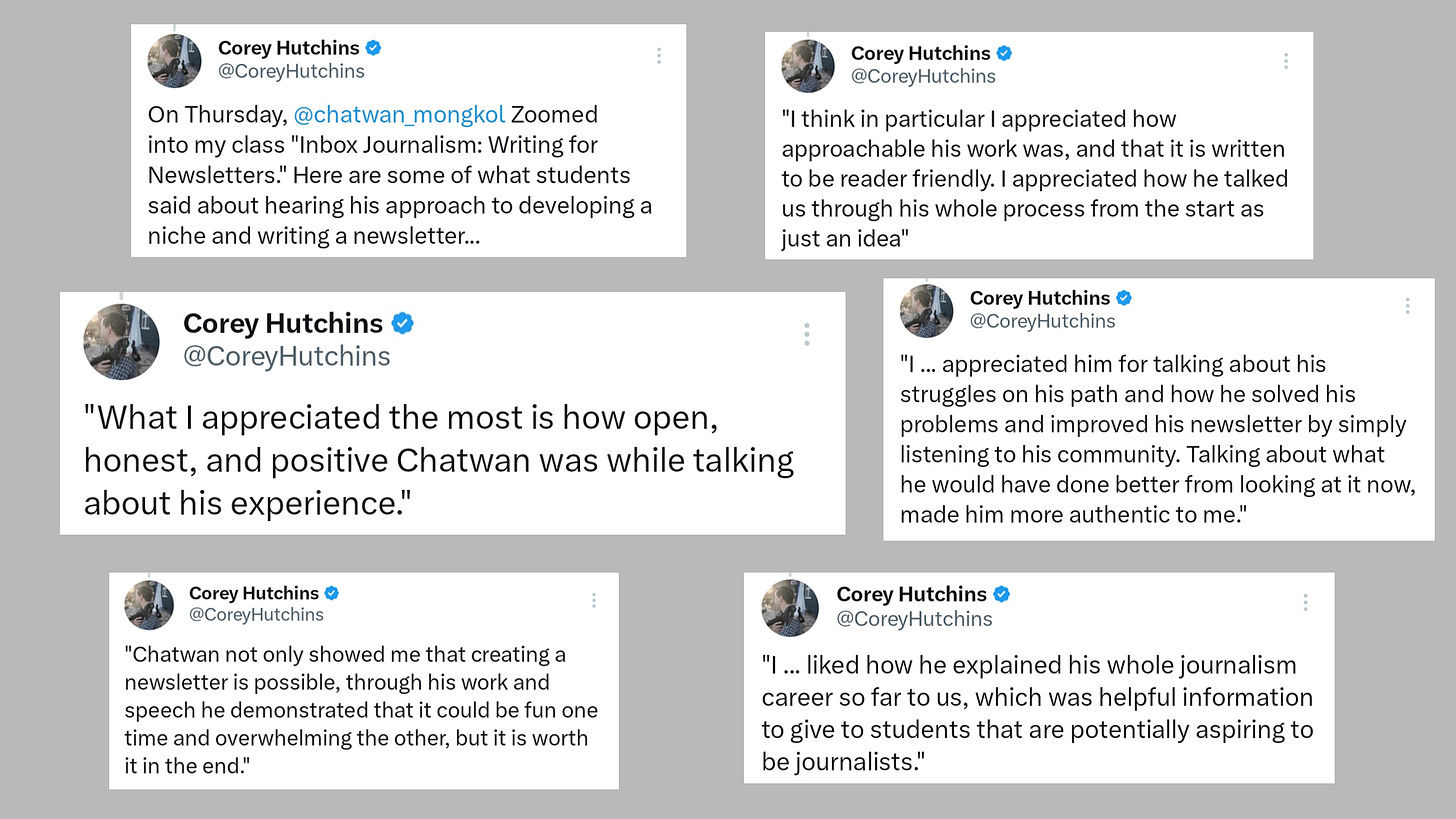Preparing election coverage last minute? Here's some advice, resources
Journalism educators: Know the process. Stay local. Engage your audience.

Election night for student journalists: Nothing says democracy like tweeting precinct updates faster than your professors can refresh their feeds.
What’s your plan for Tuesday and the rest of the week?
I know I’ll be tuning into Student News Live, a 24-hour broadcast by student journalists nationwide, running from noon ET Tuesday to noon Wednesday. (More on this next Monday!)
I’ll also be checking the National Community News Wire’s Election Hub and Best of SNO’s election section, both featuring coverage by high school and college journalists.
For those still finalizing coverage plans, remember: Election reporting doesn’t end Tuesday night. Some of the biggest stories — what the results mean for your communities and campuses — will unfold in the days after.
Throughout October, I’ve covered how student journalists are preparing for the election, from adding a Washington correspondent to traveling to swing states and partnering with local outlets.
Take a look at these stories for ideas on how to approach your coverage.
Finally, here’s advice from five journalism educators on what student journalists should keep in mind while covering this historic election.
These responses have been edited for style, clarity and flow.
Election won’t be over Tuesday
Kathryn Quigley of Rowan University: The 2024 presidential election will be unprecedented, and Election Day (or week) will be as well.
For one thing, the race is extremely tight. Election night results will most likely come down to several states, including Pennsylvania, Georgia, Michigan and Wisconsin.
I predict we will not know the final results for several days. Part of this could be because of major hurricane damage in North Carolina, Georgia and Florida. Some election precincts remain in disarray. Election lawsuits are sure to follow.
So even though many people want this election to be over, it probably will not be on election night.
‘Write your community onto the map’
John Tomasic of the University of Washington Seattle: Late-season election coverage is vital. Internalize the fact that you're a member of what will be, in effect, an international team of journalists making a record for the history of this moment in U.S. democracy. It's a big moment.
You'll have two main journalism missions: The first is watchdogging people and processes and the second is putting readers-viewers-listeners right there on the scene in your corner of the country.
So, one part of you looks to report breakdowns, hitches and hiccups in election processes and of course to expose bad actors who would intimidate voters and election workers and spread disinformation and otherwise throw wrenches into machinery.
The other part of you revels in the opportunity to pump out memorable descriptive passages that put readers, viewers or listeners right there as the day unfolds in the community or communities from which you're reporting. These are days of spot features and mini-profiles.
Write your community onto the map of the moment and help make the larger portrait of these late election-season days across the country more complete.
Familiarize yourself with the process
Pat Howe of California Polytechnic State University: My last-minute advice would be for students to interview their local county clerk-recorder or whoever will be running the election now and ask them how the process typically unfolds.
Some places will count mail votes in advance and announce that tally as soon as votes close. Others won't start counting until then.
But whatever the process, you'll feel way more confident doing everything on election night if you understand the process in advance. Also: make your newsroom buy you pizza!

Know, engage your audience
Lara Bergen of Press Pass NYC: Part of your job as student journalists — not only during elections — is engaging your audience and making sure they know what you're working on and why.
One big why, of course, is to provide them with information they can not only use but need. So make sure you're finding out what election info they need and questions they have through surveys and solicitation. (Chalkbeat/Headway's election partnership is also a great way to gauge student's needs.)
Also, often forgotten but incredibly important to students' daily lives are local elections, and local candidates are almost always up for talking to student journalists.
Interview those running for office this year but also those in an off year. Do your research ahead of time on their platforms and ask them about youth-related issues they might not be as vocal about. You might get a good scoop!
Look for more ideas and resources on Press Pass NYC's election resources page.
Focus on the process
Scott Finn of the Center for Community News at the University of Vermont: In this age of misinformation, we believe the most important thing our student journalists can do is to document the voting process itself. They've already done stories about how to vote this year and profiles of local candidates.
On Election Day, we'll fan out across Vermont to tell stories from the polls. Students will be interviewing voters about their motivations and poll workers about the process. It's the first election where most Vermont voters received a ballot automatically by mail, so it’s extra important to document election integrity — following the multiple ways people can vote and how ballots are counted.
Every student will get something visual (photo or short video) and ask open-ended questions. They'll come back to UVM where we'll edit the stories, and then send them to our outlets to use on their websites and social media platforms.
We're also having a bit of an election watch party for our students and others who want to gather on election night.
🔎 Check out these resources
The Student Press Law Center has a guide created specifically for student journalists on legal resources, story ideas, political ads and more.
Press Pass also has a guide for student journalists that includes examples of different story ideas, instructions for contacting officials, where to find free election photos and resources for journalism educators.
Election SOS has a scenario planning guide, which illuminates a variety of challenges that journalists and newsroom leaders are contending with and provides thought-provoking questions, actionable insights and links to support.
The Reporters Committee has created this page as a one-stop shop of free resources to help journalists covering the 2024 elections better understand their legal rights and more fully report on the election process.
Poynter has a series on how to be a better fact-checker in 8 videos.
The Journalist’s Resource has an election collection that includes resources to help you cover surveys and opinion polls, voting issues, election administration issues, local elections, and ballot measure topics.
Newsrooms covering U.S. elections are invited to apply for access to the Votebeat Expert Desk/Election Urgent Care Slack by Knight Election Hub, Votebeat, and Hearken. The Slack community will operate through Dec. 11.
💬 I want to hear from you: What topics do you want covered in the newsletter? Who do you want to hear from? Reach me at nutgrafnews@gmail.com.
🎧 Extra! Extra!
The Nutgraf, in collaboration with The Journalism Salute, hosted a panel on how student journalists are covering the 2024 election. They talked about how they traveled across swing states and how they were preparing for the unexpected.
🚀 Humble Brag:
I got to chat with Colorado College’s newsletter writing class, and they actually liked what I had to say. Thanks
and his students for having me.So, if you’ve been waiting for the perfect time to share this newsletter, here it is! And if you’d like me to speak with your class, just reach out.
Story Spotlight:
🗳️ The Hilltop is gearing up for its biggest assignment yet: covering Election Night with Vice President Kamala Harris at Howard University, NBC News reported.
🔎 The Channels’ editorial board explained the investigative process — from chasing tips to relying on anonymous sources — in its report on unethical football recruitment at City College in Santa Barbara.
🪧 The BYU Universe reported on a pro-abortion rally in Salt Lake City. Sen. Mike Lee called for the article’s removal — a move that, while not unconstitutional, undermines principles of free expression, according to a First Amendment lawyer.
⛔ Student media leaders at The Claremont Colleges described intimidation and retaliation — including a campus ban and disciplinary charges — by Pomona College’s administrators over coverage of Palestine.
🚩 The Campus Times reported on ongoing censorship issues, noting restrictive actions from multiple departments and organizations. “We need to have access to the information we need to do our jobs,” the editorial board wrote.
💵 A new study highlighted the challenges facing college newspapers as declining readership, fierce ad competition and funding gaps obstruct their success, Editor & Publisher reported.
Featured Opportunities:
The Baltimore Banner is hiring a summer newsroom intern; apply by Nov. 11.
Join SPJ Georgia for a mental health session designed specifically for journalists Nov. 13.
The Hill’s Washington-based internship program closes Nov. 15.
The Chronicle of Higher Education is accepting applications for its 2025 spring internship until Nov. 20.
The Atlanta Journal-Constitution is offering internships across reporting, video/photo/graphics and programming for next summer.
The International Center for Journalists is seeking a winter/spring communications intern.
BBC offers webinars on its various apprenticeships, with applications open until January.
The New England First Amendment Coalition provides a free mentorship program for journalists in the region.








